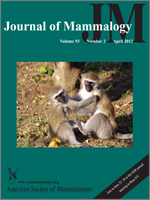The number, size, and survival of bear cubs emerging from winter dens depend on maternal condition prior to entering the den. We hypothesized that delayed implantation provides flexibility in timing of birth such that pregnant females are able to track environmental or body conditions long after conception to optimize reproductive output in a changing environment. We tested the hypotheses that causative links between maternal condition and size of newly emerging brown bear (Ursus arctos) cubs were females in superior condition give birth earlier and, thereby, lactate longer in the den than females in poorer condition; and females in superior condition produce more milk or higher quality milk, which accelerates cub growth relative to females in poorer condition. No brown bear with a body fat content ≤ 20% produced cubs even though breeding occurred. Brown bears that were fat gave birth earlier than those that were lean. Cubs nursing from fat mothers grew faster than those nursing from lean mothers. The combination of an earlier birth date and faster growth by cubs produced from fat mothers increased mass of brown bear and polar bear (U. maritimus) twins at den emergence by 330–360 g for each unit increase in percent maternal body fat content when entering hibernation.
How to translate text using browser tools
1 April 2012
Maternal condition determines birth date and growth of newborn bear cubs
Charles T. Robbins,
Merav Ben-David,
Jennifer K. Fortin,
O. Lynne Nelson
ACCESS THE FULL ARTICLE

Journal of Mammalogy
Vol. 93 • No. 2
April 2012
Vol. 93 • No. 2
April 2012
birth
brown bears
cub growth
delayed implantation
maternal condition
reproduction




